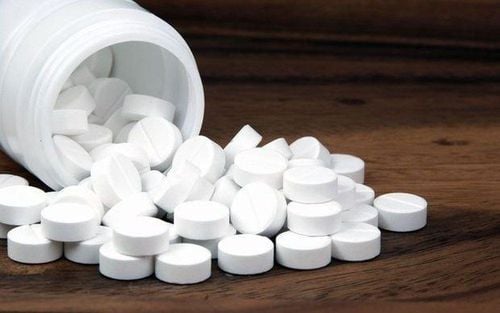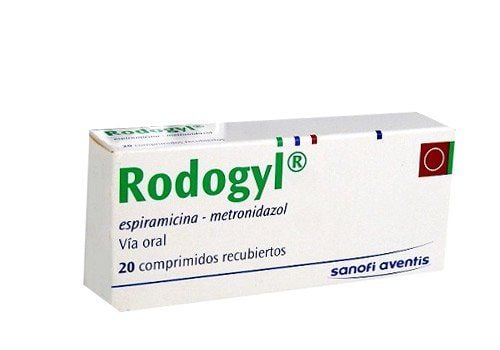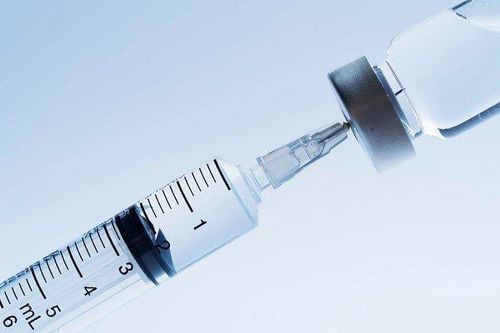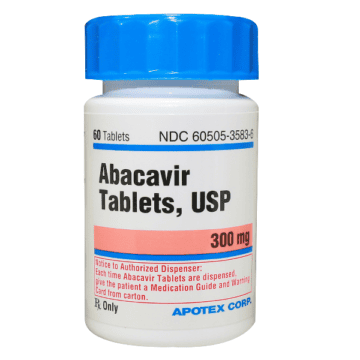This is an automatically translated article.
Cefazoline is a parasitic, antiviral and fungal, anti-infective drug, so it is indicated in ENT infections, bacteremia, oral infections, some cases of bacteremia and biliary tract infections. ,... So how to use Cefazoline?1. The effect of the drug Cefazoline 400mg
Cefazoline drug belongs to the group of drugs to treat parasites, antifungal and antiviral, anti-bacterial, effective in the treatment of cases such as:
Infections of ears, nose, throat, lungs, bronchi, urogenital infections , endocarditis, skin, oral, bone, and serosa infections Some cases of sepsis and endocarditis Some cases of biliary and genitourinary infections Prophylaxis in surgery Surgery may reduce the incidence of postoperative infection in patients undergoing surgery with a high risk of infection or in areas where postoperative infections are particularly serious. In addition, some other effects of the drug that are not listed on the approved drug label, but in some cases, the doctor may prescribe the use of Cefazoline. Therefore, before using the drug, the patient should consult the doctor.
2. How to use Cefazoline 400mg
Cefazoline 400g is prepared as a powder for injection with a concentration of 400mg, so it can be injected deep intramuscularly or slowly injected into a vein for 3-5 minutes or intravenously. Mix the medicine according to the instructions, can be diluted with 50-100ml with 0.9% saline or distilled water, then shake the vial vigorously. Dosage will be based on the condition and age of the patient.
For adults, the usual dose is 0.5 - 1 gram, injected every 6-12 hours. The maximum dose commonly used is 6 grams/day, although in severe, life-threatening infections, up to 12 grams/day has been used. For infants under 1 month of age, the dose is 20mg/kg, injected every 8-12 hours. Because the safety of the drug in premature infants less than 1 month of age has not been fully studied, therefore, the use of Cefazoline in infants under 1 month is not recommended. Children over 1 month old can be used with a dosage of 25-50mg/kg/day divided into 3-4 times/day. For severe infections, the dose may be increased to a maximum of 100 mg/kg/day in 4 divided doses. For intraoperative infections, inject at a dose of 1 gram 0.5-1 hour before surgery. For prolonged surgery, the dose is 0.5-1 gram further during surgery. After surgery, injection with a dose of 0.5-1gram injected every 6-8 hours for 24 hours or for 5 days in some cases such as open heart surgery and orthopedic transplants. For patients with renal impairment, the dose should be reduced, but the reduction has different recommendations and can be used by: Patients with creatinine clearance 55ml/min use the usual dose Patients with clearance Creatinine 35-54 ml/min, use the usual dose with time between two doses lasting at least 8 hours. Patients with creatinine clearance 11-34ml/min receive 1⁄2 of the usual dose every 12 hours. In patients with creatinine clearance 10ml/min, use 1⁄2 of the usual dose with a time interval of 18-24 hours. To use this medicine safely, use Cefazoline exactly as directed by your doctor. Use Cefazoline regularly to get the most benefit from it and you can stop taking it if any new symptoms appear or the condition does not improve. Patients absolutely do not abuse the drug for too long for a long time. This does not make the patient's condition better, but also increases the risk of unwanted effects.
3. Undesirable effects when using the drug Cefazoline
Cefazoline can cause some unwanted and common side effects that can be mentioned as:
Local reactions: painful swelling at the injection site, thrombophlebitis Toxic epidermal necrolysis Pustular rash develops systemic neutropenia or agranulocytosis. These cases all occurred due to high cumulative doses in a single course of treatment. Immune hemolytic anemia during treatment with high doses. Before prescribing a drug, your doctor always considers the benefits and effectiveness of Cefazoline. When using Cefazoline can still occur unwanted effects. Therefore, when there are unusual symptoms, especially when a severe allergic reaction occurs with accompanying signs such as severe dizziness, difficulty breathing, rash, ... the patient needs to be informed. Immediately notify the doctor or nurse for immediate medical intervention.
4. Some notes when using Cefazoline
Some notes when using Cefazoline include:
Allergy notice to Cefazoline hypersensitivity reaction to any other allergy. Cefazoline may contain inactive ingredients and could cause an allergic reaction or other serious problems. Report any medications you are taking including prescription and nonprescription drugs, herbs and supplements, foods, dyes or preservatives. Cefazoline is contraindicated in patients Some cases have been reported that Cefazoline interferes with the synthesis of vitamin K-dependent coagulation factors. Therefore, it is necessary to monitor bleeding time in patients at pre-risk. history of bleeding, thrombocytopenia, or the use of drugs that affect platelet function. Cefazoline should be used in patients with renal failure, liver dysfunction or a history of gastrointestinal disease and nutritional deficiencies, because it may increase the risk of bleeding. The incidence of cross-allergic reactions between penicillins and cephalosporins in cases of a history of penicillin-induced anaphylaxis or other severe IgE immune globulin-mediated reaction should therefore be avoided in these cases. Because Cefazoline has two heterocycles at positions 3 and 7 and is a tetrazol derivative that mimics the seizure-causing phenyltetrazol, it is highly likely that Cefazoline causes seizures. Several cases of neurotoxicity have been reported with cefazoline following intraventricular and systemic administration. In animals, Cefazoline is a cephalosporin ranked second in terms of nephrotoxicity and damage similar to cephaloridine, but the relationship of this toxicity in humans is unknown. If there is an allergic reaction to Cefazoline, it should be stopped immediately and treated with commonly used drugs such as adrenaline or vasoconstrictor amines, corticosteroids, antihistamines. Long-term use of Cefazoline may result in overgrowth of non-susceptible organisms. Monitor patients carefully during treatment to prevent superinfection. The use of Cefazoline by injection into the cerebrospinal fluid has not been approved, and there have been reports of severe CNS toxicity including seizures with Cefazoline administration. During pregnancy, fertility studies in mice, rabbits and rats at doses up to 25 times the human dose showed no evidence of impaired fertility or harm to the fetus. Therefore, Cefazoline can be considered safe for use in pregnant women and can be administered intravenously 2 grams every 8 hours, to treat nephritis, pyelonephritis for pregnant women in the second half of pregnancy. Although there are no known harmful effects on the fetus, there are no adequate and well-controlled studies in pregnant women. Therefore, Cefazoline should only be used in pregnant women when absolutely necessary. During lactation, the concentration of Cefazoline in breast milk is low, but there are still 3 potential problems that can occur in breastfed infants such as changes in intestinal microflora, direct effects on the nursing infant. , the antibiogram in children with fever is confounded. Diarrhea, thrush due to candida and rash should be observed in breastfed infants of mothers receiving Cefazoline. For patients with renal impairment, dose reduction and close monitoring of renal function and blood count are required, especially in the case of long-term and high-dose therapy. If the patient develops a hypersensitivity allergic reaction, Cefazoline should be discontinued and supportive measures such as maintenance of ventilation and administration of oxygen, epinephrine, and intravenous steroids administered. Mild cases of pseudomembranous colitis usually require discontinuation of the drug; moderate and severe cases should be noted for the use of solutions and electrolytes, protein supplementation, and antibiotic therapy with clinical effects. Colitis caused by clostridium difficile. If you forget to take a dose of Cefazoline, notify your healthcare provider right away so that it can be taken again as soon as possible. However, if it is close to the time of your next dose, skip the missed dose and continue taking or injecting the medicine as scheduled. Do not use more drug than prescribed treatment. Cefazoline overdose or ingestion can cause serious symptoms such as nausea, vomiting, abdominal pain, shortness of breath, fainting,...
5. Drug interactions
Drug interactions can decrease the effectiveness of Cefazoline, or increase the effect of unwanted effects. Tell your doctor about all other medicines you are taking including over-the-counter medicines, vitamins, prescription drugs, and herbal products. Do not start, stop or change the dose of any medicine without your doctor's consent.
Some drugs that can interact with Cefazoline include:
Probenecid Warfarin Alcohol
6. How to store Cefazoline?
Store Cefazoline in powder form for injection at room temperature below 30 degrees Celsius, protect from light and avoid humid places. Do not store Cefazoline in a humid place or in the freezer, away from heat and open flames. Different medicines will have different storage methods, so read the Cefazoline storage instructions on the package carefully, or ask your pharmacist. Keep Cefazoline out of the reach of children and family pets. When the medicine has expired or is damaged and cannot be used anymore, dispose of it and dispose of it properly. Do not arbitrarily dispose of Cefazoline into the environment such as water pipes or toilets unless requested. Please consult your waste disposal company or pharmacist on how to safely dispose of Cefazoline to help protect the environment.
In summary, Cefazoline is effective in the treatment of bacterial infections such as ENT infections, bacteremia, oral infections, some cases of bacteremia and biliary tract infections,... However, Cefazoline can cause some unwanted effects and drug interactions, so tell your doctor what medicines you are taking to reduce the risk of unwanted effects and at the same time increase effectiveness. results for the treatment.
Follow Vinmec International General Hospital website to get more health, nutrition and beauty information to protect the health of yourself and your loved ones in your family.
Please dial HOTLINE for more information or register for an appointment HERE. Download MyVinmec app to make appointments faster and to manage your bookings easily.













